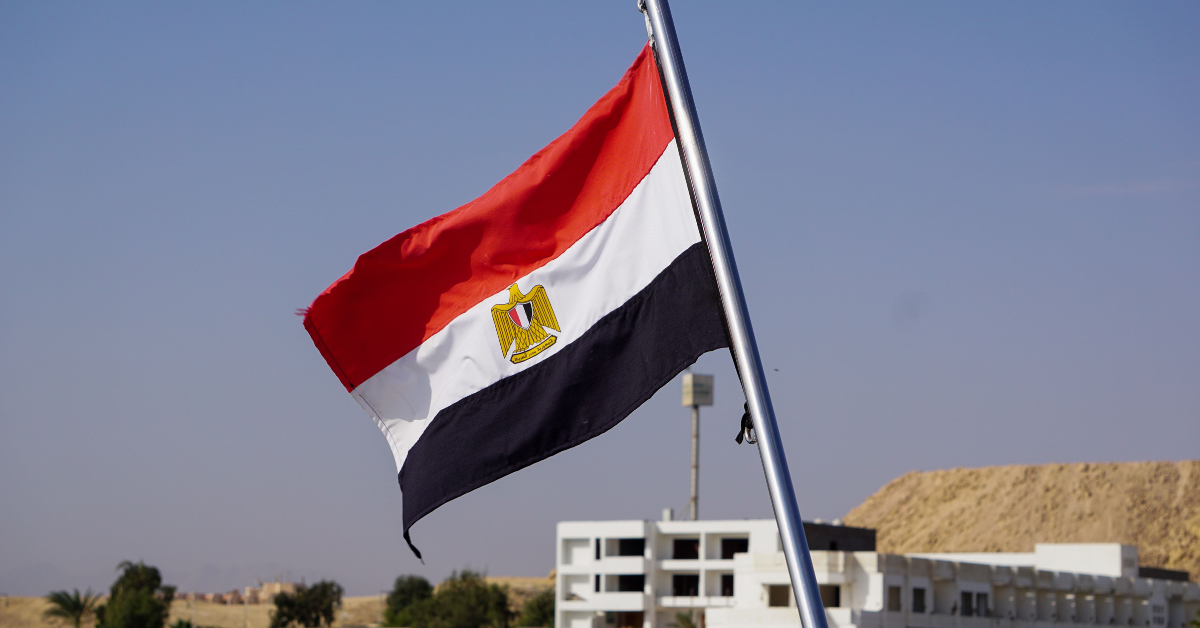Egypt’s story is written in the stones of its pyramids and the walls of its Coptic churches. As the bridge between Africa and the Middle East, this nation of 110 million has been a spiritual crossroads for millennia. Today, while tourists flock to see pharaonic temples, a living Christian community – one of the oldest in the world – faces challenges their ancestors would recognize all too well.
Christianity came to Egypt in the first century, and the Coptic Orthodox Church traces its roots directly to the Apostle Mark. Egypt was a Christian stronghold for centuries until the Arab conquest in the 7th century. Remarkably, through 1,400 years of Islamic rule, the Coptic Church preserved its language, traditions, and faith. Modern Egypt’s Christian community, while diminished, remains the largest in the Middle East at about 10% of the population.
The 20th century brought new tensions. After the 1952 revolution, Egypt’s secular nationalist government gave way to increasing Islamist influence. While Copts were prominent in business and culture, they faced growing discrimination. The 2011 Arab Spring uprising initially raised hopes for equality, but the subsequent years saw increased attacks on churches and Christian communities, particularly in rural Upper Egypt.
Today’s Egypt presents contradictions. President el-Sisi’s government has positioned itself as a protector of Christians, even attending Coptic Christmas services. Yet converts from Islam still face legal harassment, church construction remains heavily restricted, and violent attacks continue. In 2017, ISIS bombings targeted Palm Sunday worshippers, killing 45. More recently, economic crises have fueled scapegoating of Christians.
Today, Egypt’s Christians navigate a complex web of official policies and grassroots hostility. While the government claims to protect religious minorities, believers face persecution that’s both systemic and spontaneous—often with little recourse.
Legal Pressures:
- Despite constitutional guarantees, Egypt’s 2016 church construction law (ostensibly designed to streamline approvals) has left 75% of Christian worship sites in legal limbo, according to local advocates. Converts from Islam face the harshest scrutiny—apostasy accusations can strip them of inheritance rights, child custody, and even freedom. Just last year, a court sentenced a Christian man to prison for “insulting Islam” after neighbors reported his social media posts.
Violence with Impunity:
- In Upper Egypt’s rural villages, sectarian violence flares regularly. A 2023 report documented 17 attacks on Coptic homes and businesses in Minya province alone—typically sparked by rumors of Christian “proselytization” or interfaith relationships. Most cases follow a grim pattern: Muslim mobs torch properties, police broker “reconciliation meetings” that favor the attackers, and Christians are pressured to drop charges to “preserve community harmony.”
The Digital Threat:
- New dangers have emerged online. Authorities increasingly monitor private WhatsApp groups where converts fellowship, while extremist forums doxx Christians who share their faith publicly. One underground pastor told us, “We used to fear the secret police—now we fear our own phones.”
Economic Exclusion:
- In workplaces and schools, discrimination is subtle but devastating. Christian teachers report being passed over for promotions, while students face mandatory Islamic education. The poorest Copts—especially garbage collectors in Cairo’s “Zabbaleen” community—remain trapped in dirty, dangerous work their Muslim neighbors refuse to do.
Yet despite government restrictions and societal pressure, God’s Word continues to spread through the underground church in remarkable ways. New converts from Islam risk everything to read Scripture, often sharing a single copy among entire networks of seekers. Secret house churches rely on handwritten verses and digital files to study the Bible without detection, while imprisoned believers cling to smuggled Scripture portions for hope. Frontlines International works tirelessly to provide these vital resources, from discreet printed copies to audio Bibles for those who must keep their faith completely hidden. The impact is undeniable – believers consistently report that access to Scripture gives them courage to endure persecution, with many describing how specific verses sustain them through raids, attacks, and imprisonment. Even in areas where evangelism is forbidden, Bibles quietly find their way into the hands of seekers. The need remains urgent as the underground church grows, requiring more Bibles in local dialects, discipleship materials for new believers, and innovative ways to deliver God’s truth in a hostile environment. Every Scripture that reaches Egypt becomes a beacon of hope, proving that no restriction can ultimately silence the power of God’s Word.
The persecuted church in Egypt needs our support now more than ever. By partnering with Frontlines International, you can help provide Bibles and discipleship materials to believers who risk everything for their faith. Your support enables the delivery of Scripture in creative and secure ways, ensuring that even in high-risk areas, Christians have access to God’s Word. Additionally, your contributions help train and encourage underground church leaders who face constant pressure and persecution. Together, we can stand with our Egyptian brothers and sisters, offering both practical help and the hope of Christ in their darkest moments.
Prayer Points:
- Pray for Divine Protection Over Believers – Lift up Egyptian Christians who face daily threats—from government surveillance to violent attacks in rural villages. Ask God to be their shield, hiding them from danger as they gather to worship in secret. Pray especially for converts from Islam, who risk losing their families, jobs, and even their lives for following Christ.
- Pray for Courage That Overcomes Fear – Many believers live under constant pressure to deny their faith. Pray that the Holy Spirit would fill them with unshakable boldness, like the apostles in Acts 4:29–31. Ask God to strengthen pastors and lay leaders who face imprisonment or fines for preaching the Gospel, that they would “not fear what man can do” (Hebrews 13:6).
- Pray for Miraculous Openings to Spread Truth – From border crossings to digital spaces, pray for creative ways to deliver Bibles and training materials undetected. Ask God to soften the hearts of officials who inspect shipments, and to open unexpected doors—like the story of Nehemiah, who found favor with a king opposed to Jerusalem’s rebuilding (Nehemiah 2:8).
- Pray for Transformation in Persecutors’ Hearts – Intercede for radical encounters with Christ, like Saul’s Damascus Road experience, for extremists and authorities who harass believers. Pray that their hatred would be replaced with holy curiosity, leading them to seek the very God they once opposed.
- Pray for the Church to Thrive in Darkness – Despite restrictions, Egypt’s underground church is growing. Pray that persecution would refine – not crush – their faith (1 Peter 1:7). Ask God to multiply house churches, protect secret discipleship networks, and use their witness to draw entire communities to Christ.
Your prayers and support make a tangible difference in the lives of those who suffer for their faith in Egypt. Join us in standing with them today.




